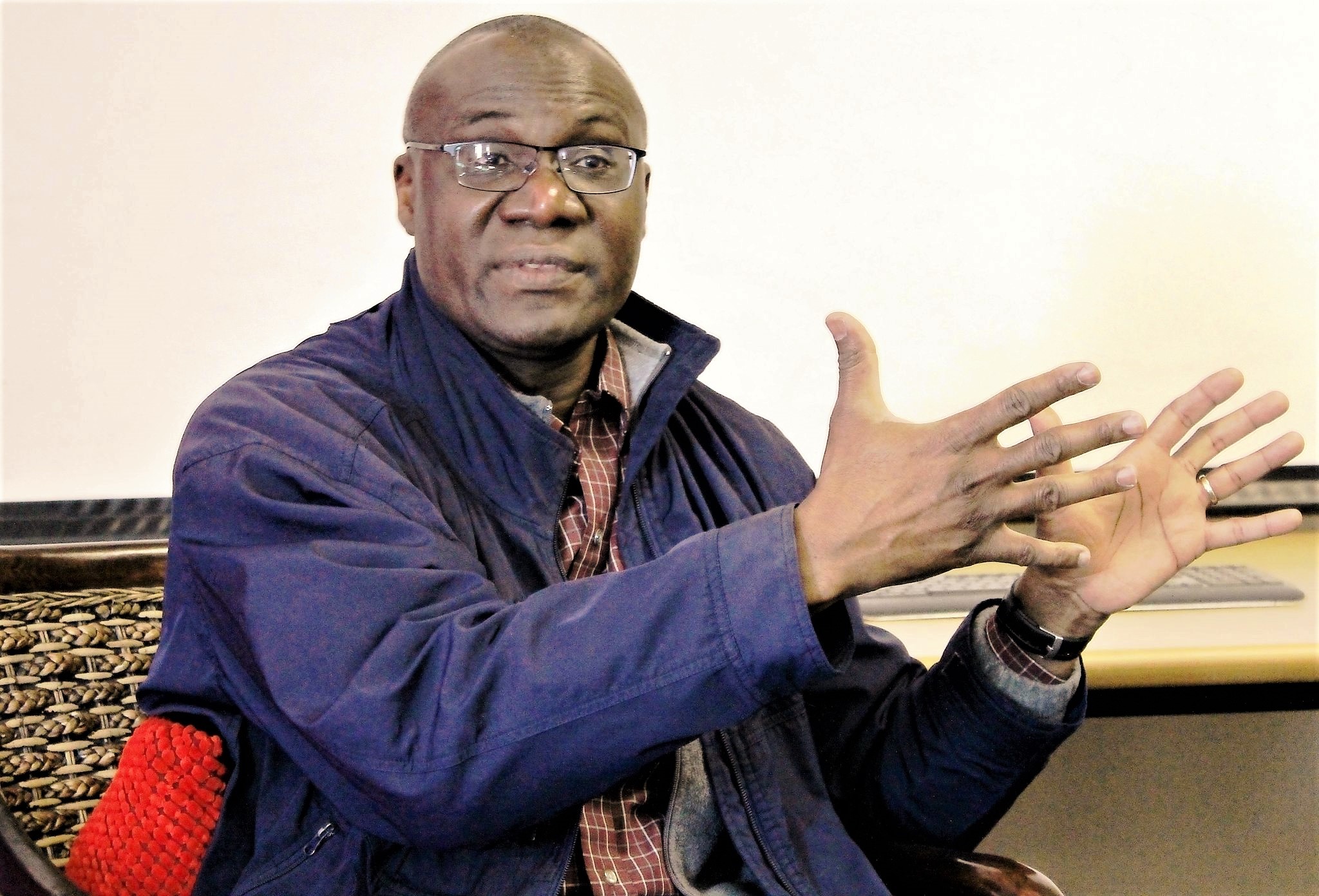
Dr Alette Schoon, Rhodes University Journalism & Media Studies School researcher and lecturer, is one of the writers and editors of the recently published African Digital Media Review Vol. 41, No. 4 (2020), a Special Annual Issue of African Journalism Studies. Edited together with Hayes Mawindi Mabweazara, Tanja Bosch, and Harry Dugmore, this Special Edition was catalysed by the inaugural African DigiMethods symposium hosted by the Rhodes University JMS School in June 2019. Challenging the entrenched over-reliance on Western methodological approaches, this inspired Special Edition is a dynamic voice in the conversation on media research in the Global South.
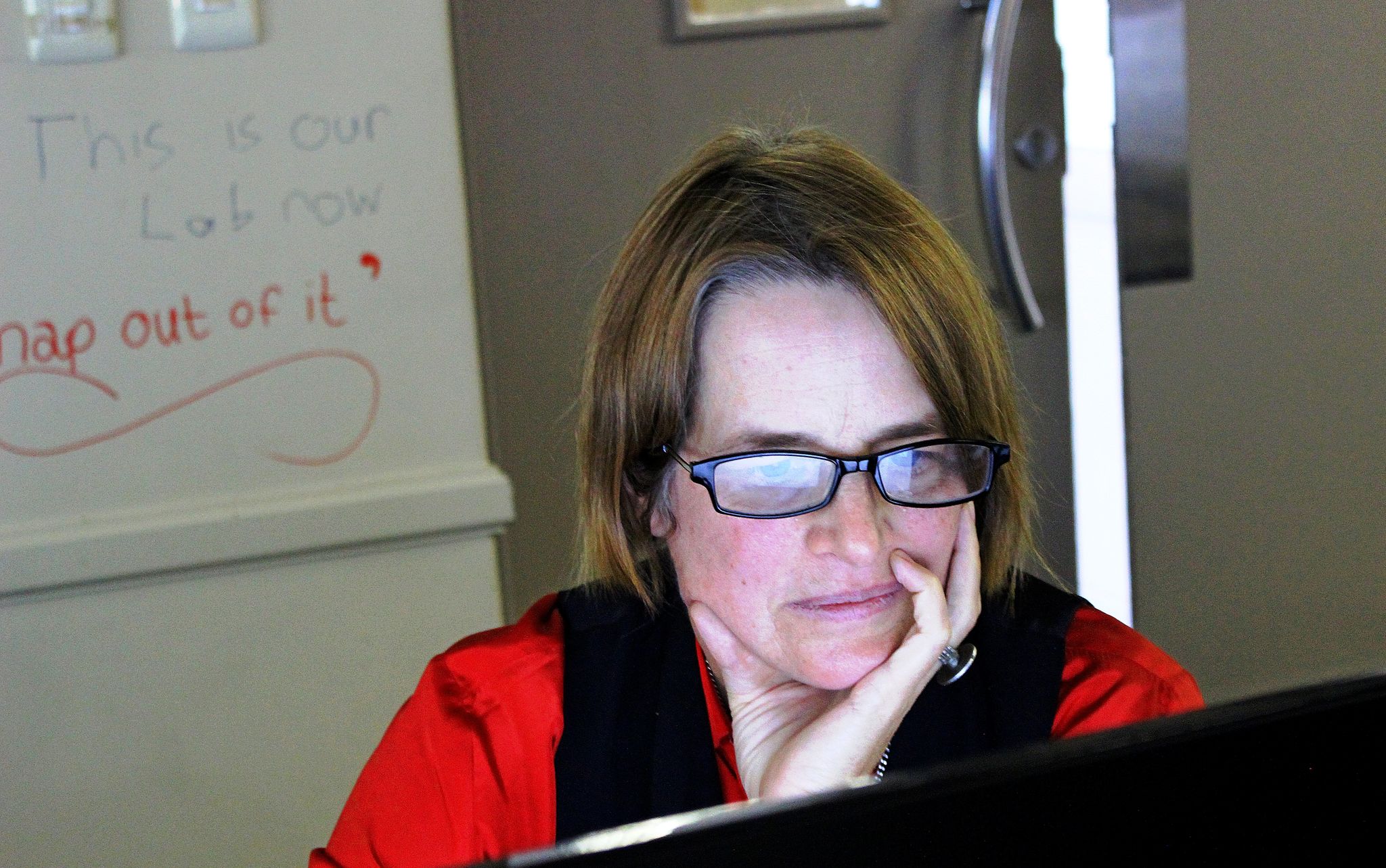
JMS researcher and lecturer, Dr Alette Schoon, co-organized the 2019 DigiMethods symposium and co-edited the latest Special Issue of African Journalism Studies. Photo by Steven Lang.
The JMS School’s DigiMethods symposium was organised by Prof Harry Dugmore and Dr Alette Schoon. Inspired by the annual Digital Methods Summer School hosted by Queensland University of Technology (QUT) in Brisbane, Australia, the symposium welcomed 15 delegates from six institutions who joined staff and students from the JMS School in Makhanda. The idea behind the JMS School’s DigiMethods symposium was to host a similar event on the African continent, offering a platform for established and emerging media researchers to discuss ways to study digital media that work for the African continent which is characterised by inequality and great diversity of access and use.
“The DigiMethods symposium took place at a critical juncture,” says Tatenda Chatikobo, 2019 DigiMethods symposium Co-ordinator and a doctoral student. “Globally, we are only starting to understand the (dangerous) extent of the commodification of human life for capital gain by global tech platforms and locally: #RhodesmustFall, #Feesmustfall protests have accelerated our intent on advancing discussions on decolonising education in light of deepening social and economic divides. Both are opportunities for rethinking research agendas for media studies on the African continent.” Chatikobo’s research is in the field of ICT4D, specifically looking at how developing communities use technological tools in their day-to-day lives, and are displacing the traditional way of knowing and organising in these developing communities. The importance of having more local events that focus on these discussions, such as the DigiMethods symposium, couldn’t be more valuable and aligned to the research interests of those similar to Chatikobo’s.
Integral to the discussions that took place at the 2019 DigiMethods symposium were keynote speakers: Prof Jean Burgess and Prof Axel Bruns from the Queensland University of Technology, Brisbane; Prof Tanja Bosch from the University of Cape Town; Mr Marco Konopacki from the Institute of Technology and Society RIO, Rio de Janeiro, Brazil; Mr Indra de Lanerolle from the University of the Witwatersrand; and Prof Wisdom Tettey from the University of Toronto.
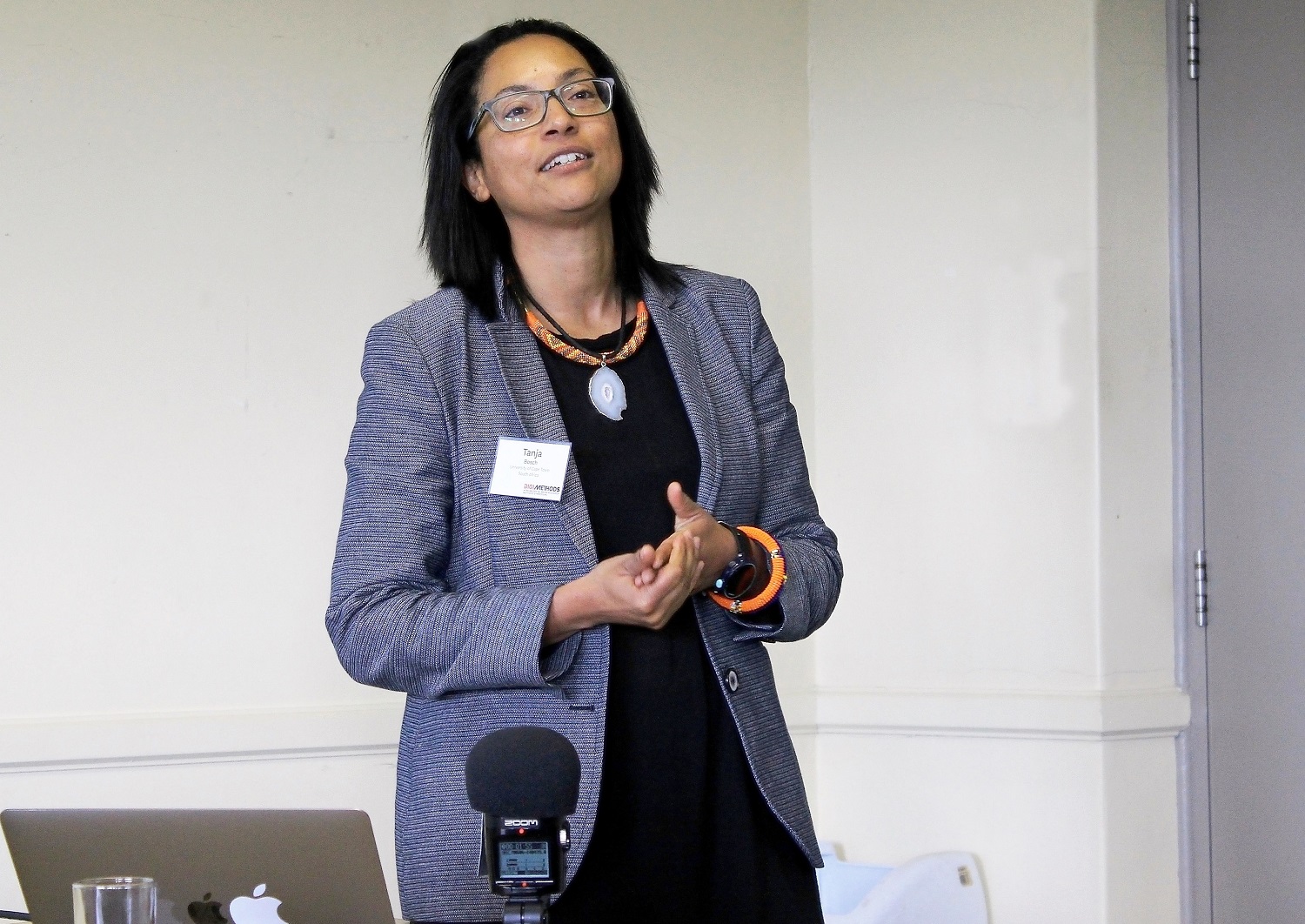
Prof Tanja Bosch from the University of Cape Town delivers the keynote address at the 2019 DigiMethods symposium. Photo by Steven Lang.
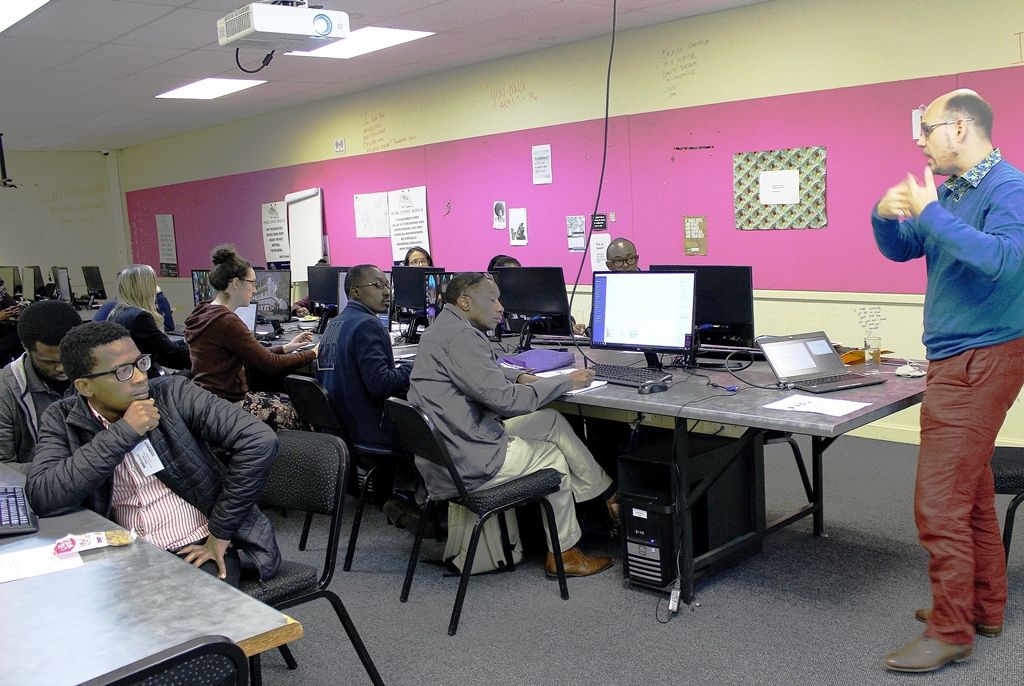
Dr Axel Bruns from the Queensland University of Technology runs a workshop at the 2019 DigiMethods symposium. Photo by Steven Lang.
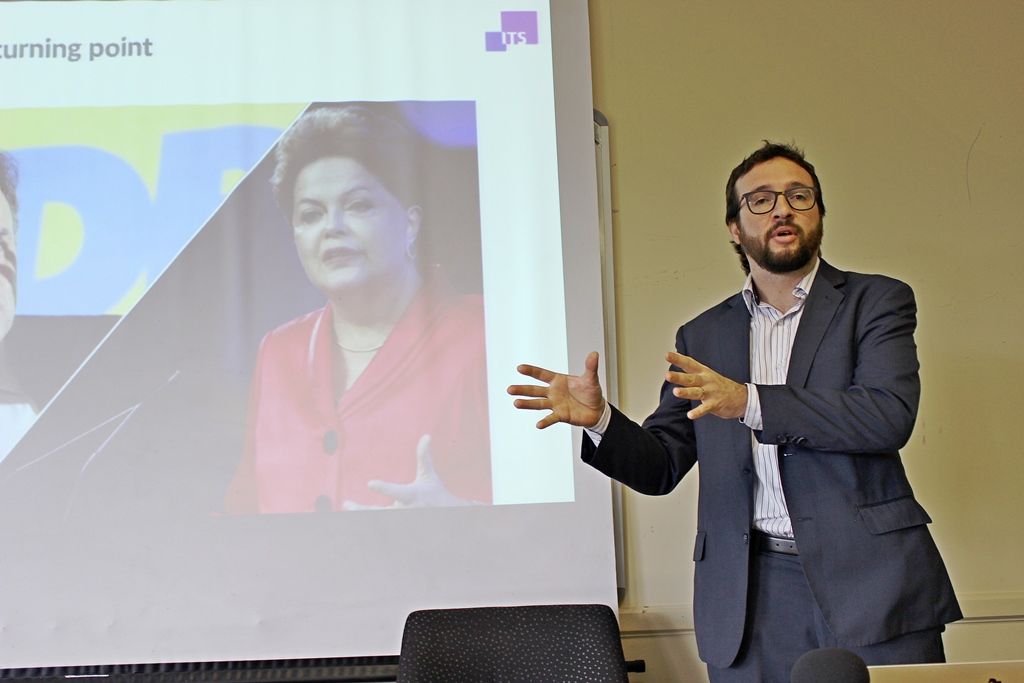
Marco Konopacki from the Institute of Technology and Society in Brazil speaks at the DigiMethods symposium. Photo by Steven Lang.
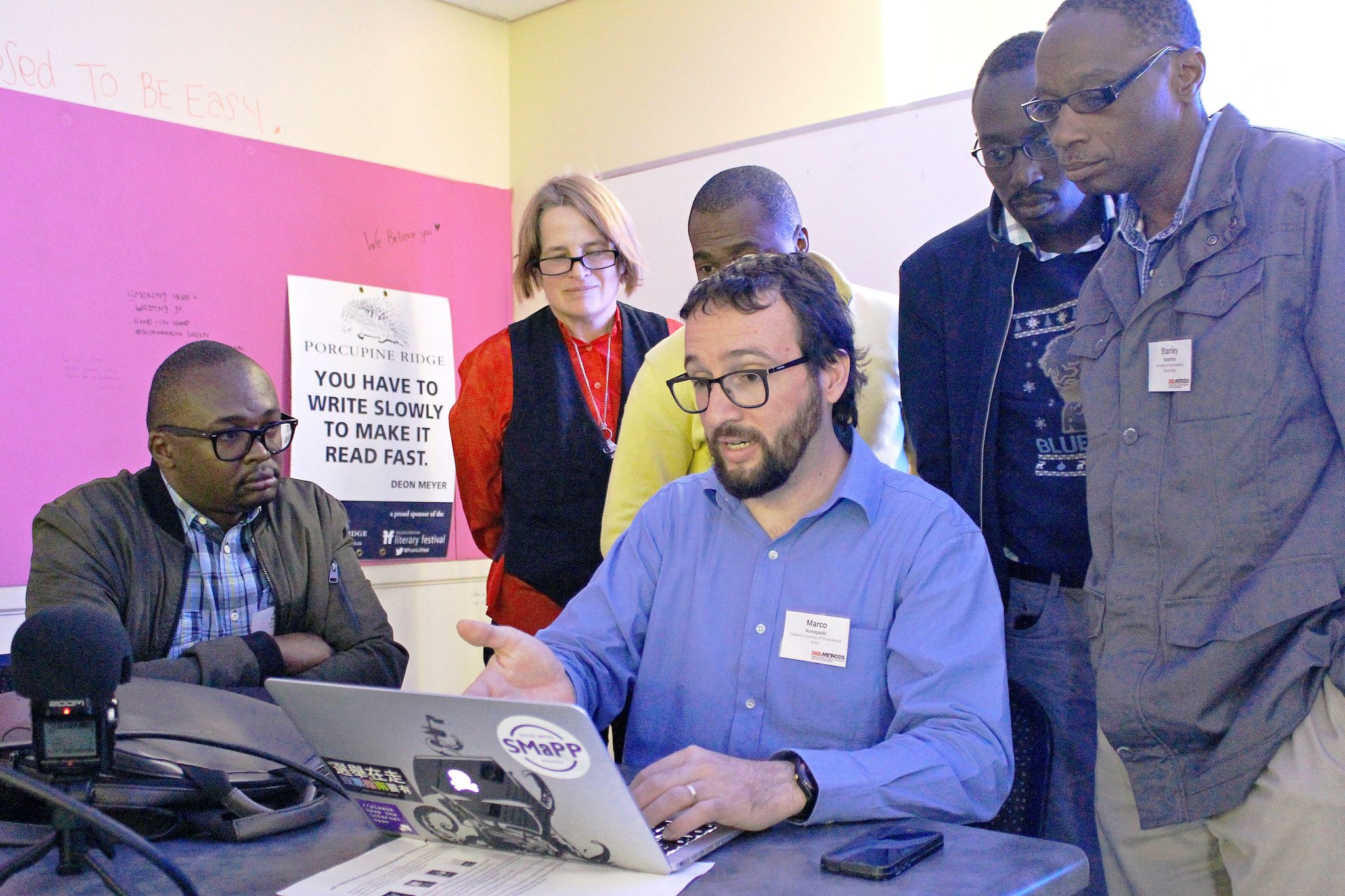
Marco Konopacki from the Institute for Technology and Society in Brazil leads a workshop at the DigiMethods symposium. Photo by Steven Lang.
In addition to Dr Schoon, the Special Edition that emerged from the DigiMethods symposium was co-edited by Hayes Mawindi Mabweazara, Tanja Bosch, and Harry Dugmore. In the introductory essay to the Special Edition titled: "Decolonising Digital Media Research Methods: Positioning African Digital Experiences as Epistemic Sites of Knowledge Production", the editors "Challenge and confront elements of the global knowledge system, which are driven by an implicit “civilising mission” in which methods and intellectual approaches drawn from the West are seen as sacrosanct, while approaches and concepts emerging from the Global South are deemed to have a “lower ontological density in the hierarchical ordering of knowledge". Reflecting on some of the key methodological challenges in the field, as well as the contributions carried in the issue, "The object of this Special Issue," write the editors, "is to initiate and facilitate research conversations between (digital) developments, concepts and methods in Africa and those unfolding elsewhere."
When recently asked what the Special Edition, particularly the introductory essay, means for the field of media research, Chatikobo said: “Most (if not all) of the decolonial academic literature (even that from the Global South) engages with the issue of power in knowledge production at a conceptual level but is poorly resourced in detailing practical ways for conducting decolonial empirical research. The introductory essay makes a very strong case that for all Global South researchers our voice matters and deserves not only to be heard but to inform, direct, and set global research agendas that encourage epistemic freedom and open up the frame of our academic lenses to look at the world. This calls for a well-co-ordinated, on-going round table by all of us to nurture these discussions and indeed, this is what made the 2019 DigiMethods symposium seminal.”
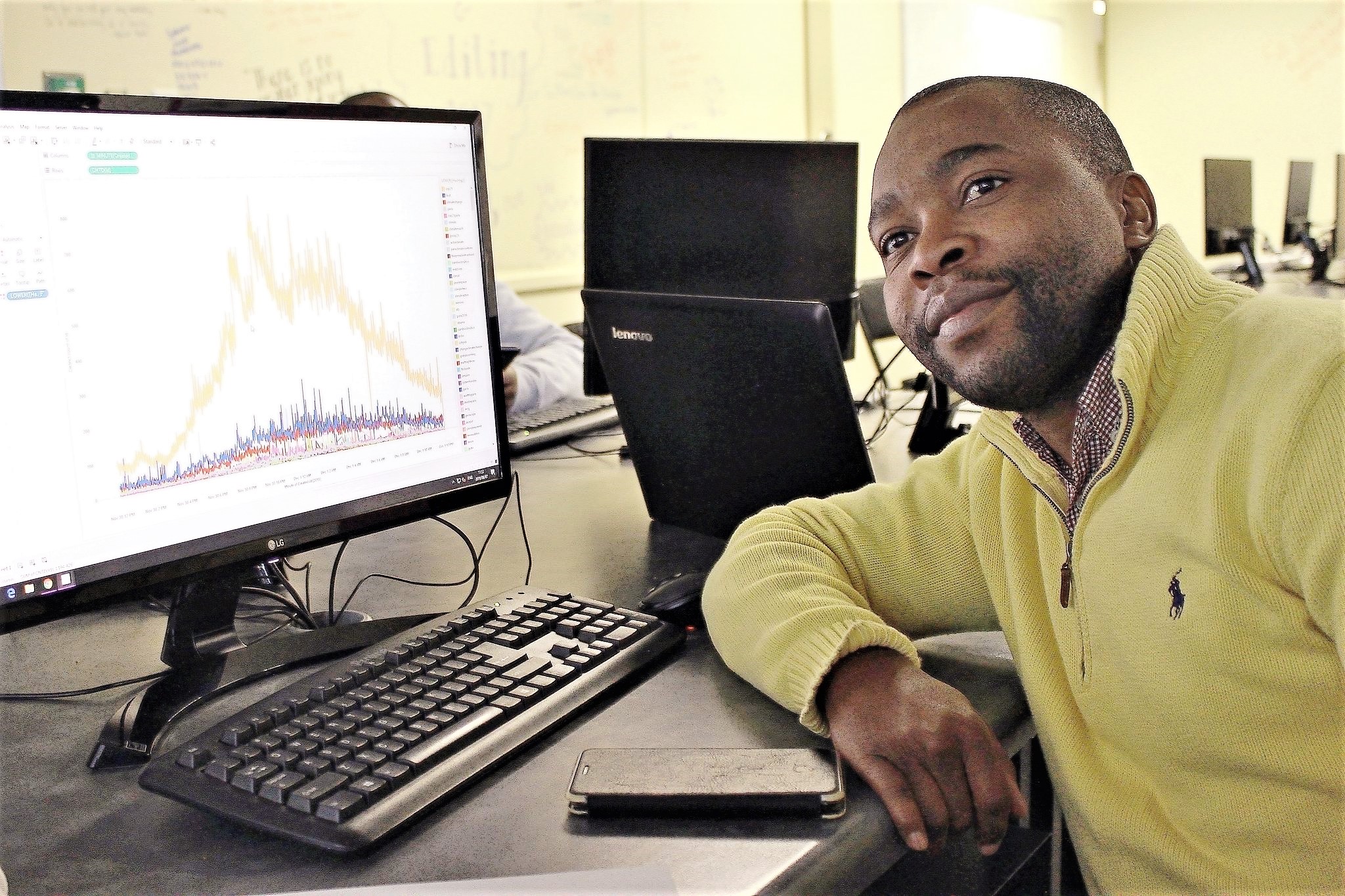
Prof Musawenkosi Ndlovu from the University of Cape Town was one of the delegates at the DigiMethods symposium. Photo by Steven Lang.
The Special Edition features an array of essays written by scholars in the field: Jean Burgess, Axel Bruns, A. Terah Ambala, Indra de Lanerolle, Marion Walton, Marenet Jordaan, Dani Madrid-Morales, Claire Moran, and Brady Robards. These essays include:
- [Introduction] Decolonising Digital Media Research Methods: Positioning African Digital Experiences as Epistemic Sites of Knowledge Production by Alette Schoon, Hayes Mawindi Mabweazara, Tanja Bosch & Harry Dugmore
- Digital Methods in Africa and Beyond: A View from Down Under by Jean Burgess & Axel Bruns
- Adapting Digital Storytelling Methods to African Contexts: Insights from the Utaifa Project by A. Terah Ambala
- Researching Mobile Phones in the Everyday Life of the “Less Connected”: The Development of a New Diary Method by Indra de Lanerolle, Alette Schoon & Marion Walton
- An Open Mind, Not an Empty Head: Towards Perpetual Waves of Newswork Ethnography by Marenet Jordaan
- Using Computational Text Analysis Tools to Study African Online News Content by Dani Madrid-Morales
- Researching Connected African Youth in Australia through Social Media Ethnography and Scroll-Back Interviews by Claire Moran & Brady Robards
Download the introductory essay to African Digital Media Review Vol. 41, No. 4 (2020), a Special Annual Issue of African Journalism Studies HERE: https://www.tandfonline.com/doi/full/10.1080/23743670.2020.1865645
All photos credited to Steven Lang
